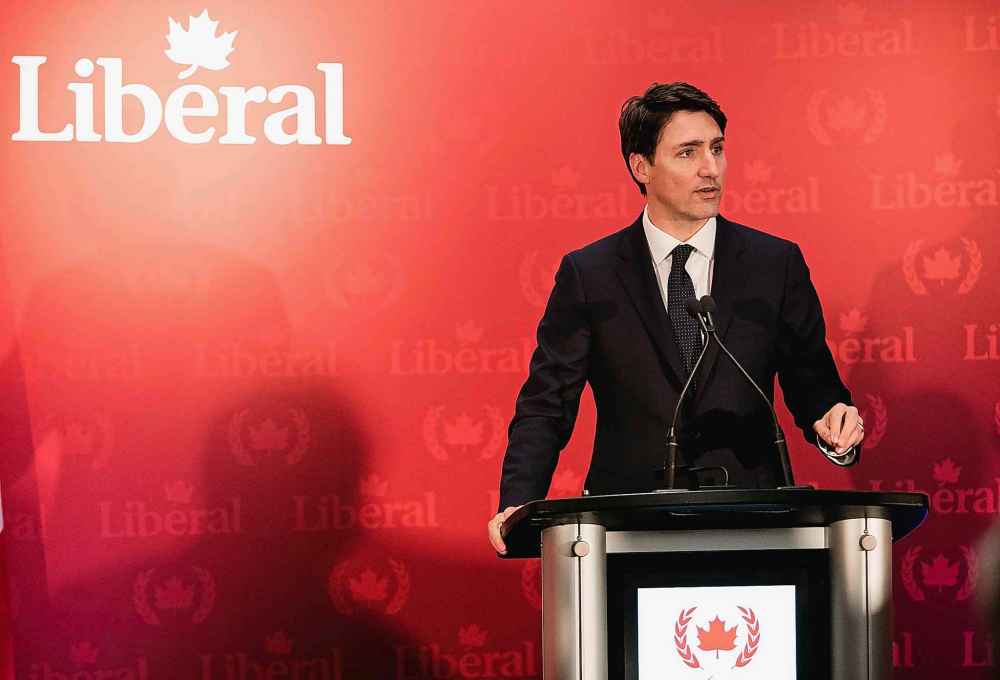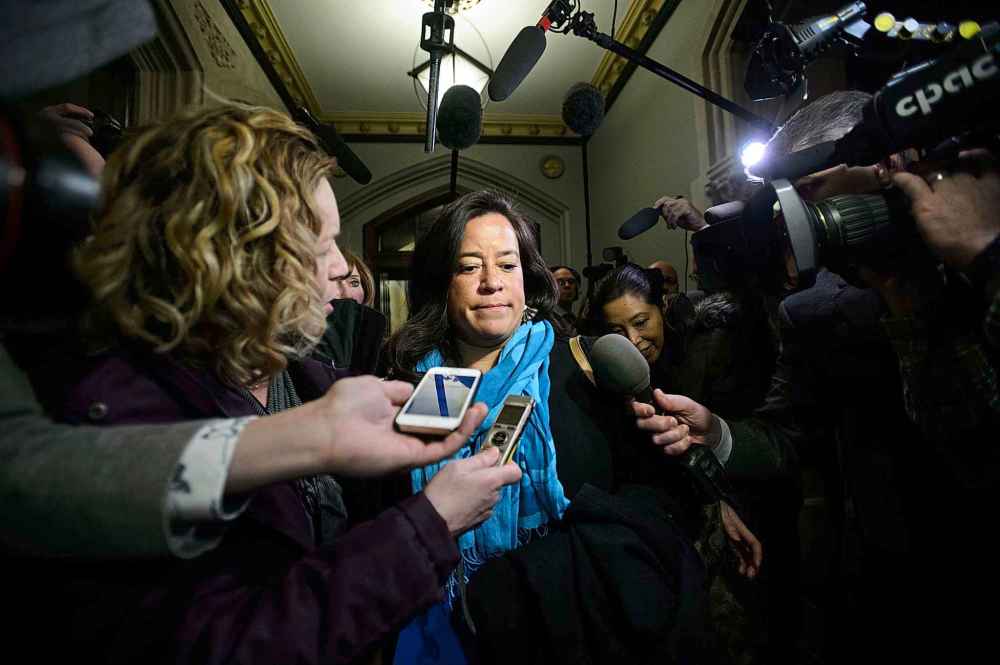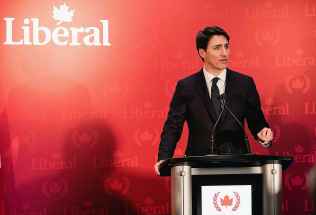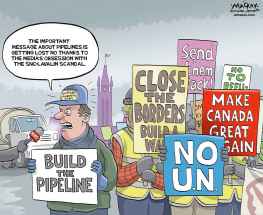PM must let Wilson-Raybould speak freely
Read this article for free:
or
Already have an account? Log in here »
To continue reading, please subscribe:
Monthly Digital Subscription
$0 for the first 4 weeks*
- Enjoy unlimited reading on winnipegfreepress.com
- Read the E-Edition, our digital replica newspaper
- Access News Break, our award-winning app
- Play interactive puzzles
*No charge for 4 weeks then price increases to the regular rate of $19.00 plus GST every four weeks. Offer available to new and qualified returning subscribers only. Cancel any time.
Monthly Digital Subscription
$4.75/week*
- Enjoy unlimited reading on winnipegfreepress.com
- Read the E-Edition, our digital replica newspaper
- Access News Break, our award-winning app
- Play interactive puzzles
*Billed as $19 plus GST every four weeks. Cancel any time.
To continue reading, please subscribe:
Add Free Press access to your Brandon Sun subscription for only an additional
$1 for the first 4 weeks*
*Your next subscription payment will increase by $1.00 and you will be charged $16.99 plus GST for four weeks. After four weeks, your payment will increase to $23.99 plus GST every four weeks.
Read unlimited articles for free today:
or
Already have an account? Log in here »
Hey there, time traveller!
This article was published 22/02/2019 (2482 days ago), so information in it may no longer be current.
She wants to speak.
And the prime minister has effectively run out of reasons why she shouldn’t.
So it’s time, next week, for Canadians to hear from former justice minister and attorney general Jody Wilson-Raybould, who will appear before the House of Commons justice committee to speak on the matter that has become the greatest looming threat to the electoral prospects of the federal Liberal government.
What remains to be seen, however, is what Ms. Wilson-Raybould will — and will be allowed to — say, as questions surrounding the issue of attorney-client privilege continue to swirl. To date, the erstwhile cabinet minister has been mostly silent, stating numerous times that she cannot speak freely because the content of conversations involving her, Prime Minister Justin Trudeau and members of the Prime Minister’s Office staff remain privileged due to her former cabinet role.

But almost as often as she has invoked attorney-client privilege in deflecting questions about alleged attempts by Mr. Trudeau and the PMO to pressure her to intervene in the fraud and bribery case against the Quebec engineering firm SNC-Lavalin, Ms. Wilson-Raybould has signalled that she is most eager to be freed of the shackle that prevents her from telling her story.
In the Commons on Wednesday, she abstained from a vote on an opposition motion calling for a public inquiry into the SNC-Lavalin affair (which was defeated by the Liberal majority), saying it would have been inappropriate to vote on a matter in which she is personally involved.
“I understand fully that Canadians want to know the truth and want transparency,” Ms. Wilson-Raybould said, adding, “Privilege and confidentiality are not mine to waive, and I hope that I have the opportunity to speak my truth.”
She is correct; they are not hers to waive. That decision lies with Mr. Trudeau, and he should consider very carefully the consequences of refusing to let Ms. Wilson-Raybould speak freely.
On Thursday, the Commons justice committee heard testimony from the federal government’s top bureaucrat — Michael Wernick, clerk of the Privy Council — who offered a spirited and sometimes contentious defence of the actions of Mr. Trudeau, the PMO and himself with regard to the former attorney general’s dealings on the SNC-Lavalin file.

But in declaring that various conversations involving Ms. Wilson-Raybould “were within the boundaries of what is lawful and appropriate,” Mr. Wernick also effectively confirmed that on multiple occasions, the prime minister or his representatives exerted pressure — while not directly advising specific action — on her by warning of the dire implications for SNC-Lavalin, and therefore Quebec, if the company was forced to go to trial and eventually found guilty, as opposed to signing a deferred-prosecution agreement as SNC-Lavalin had long sought.
With each passing day, new revelations and testimony make the PMO’s handling of this situation look more unseemly. The optics of the Wilson-Raybould/SNC-Lavalin situation are disastrous for the PM as his government heads toward a fall election, and they are only going to get worse.
But as unappealing as he finds the prospect of waiving attorney-client privilege and letting Ms. Wilson-Raybould speak her truth, waive it he must. Anything short of that, in the court of public opinion, will be viewed as a defiant and presumably guilt-motivated obstruction of justice.












